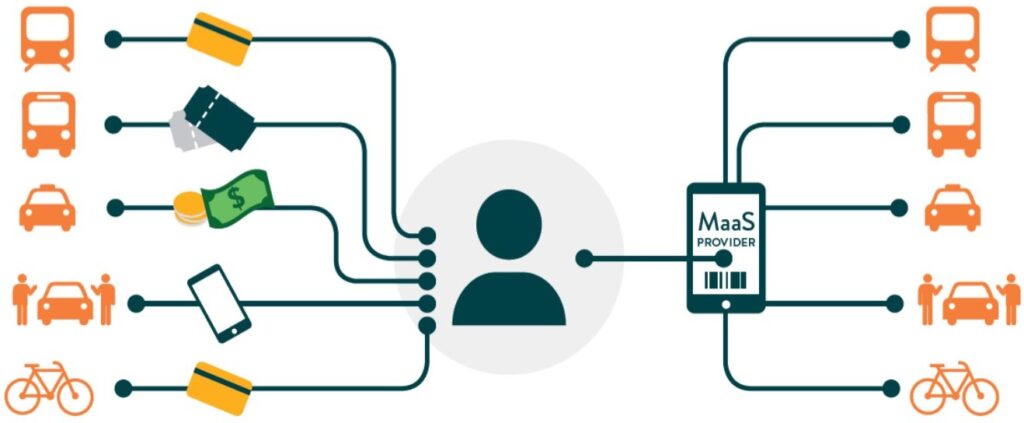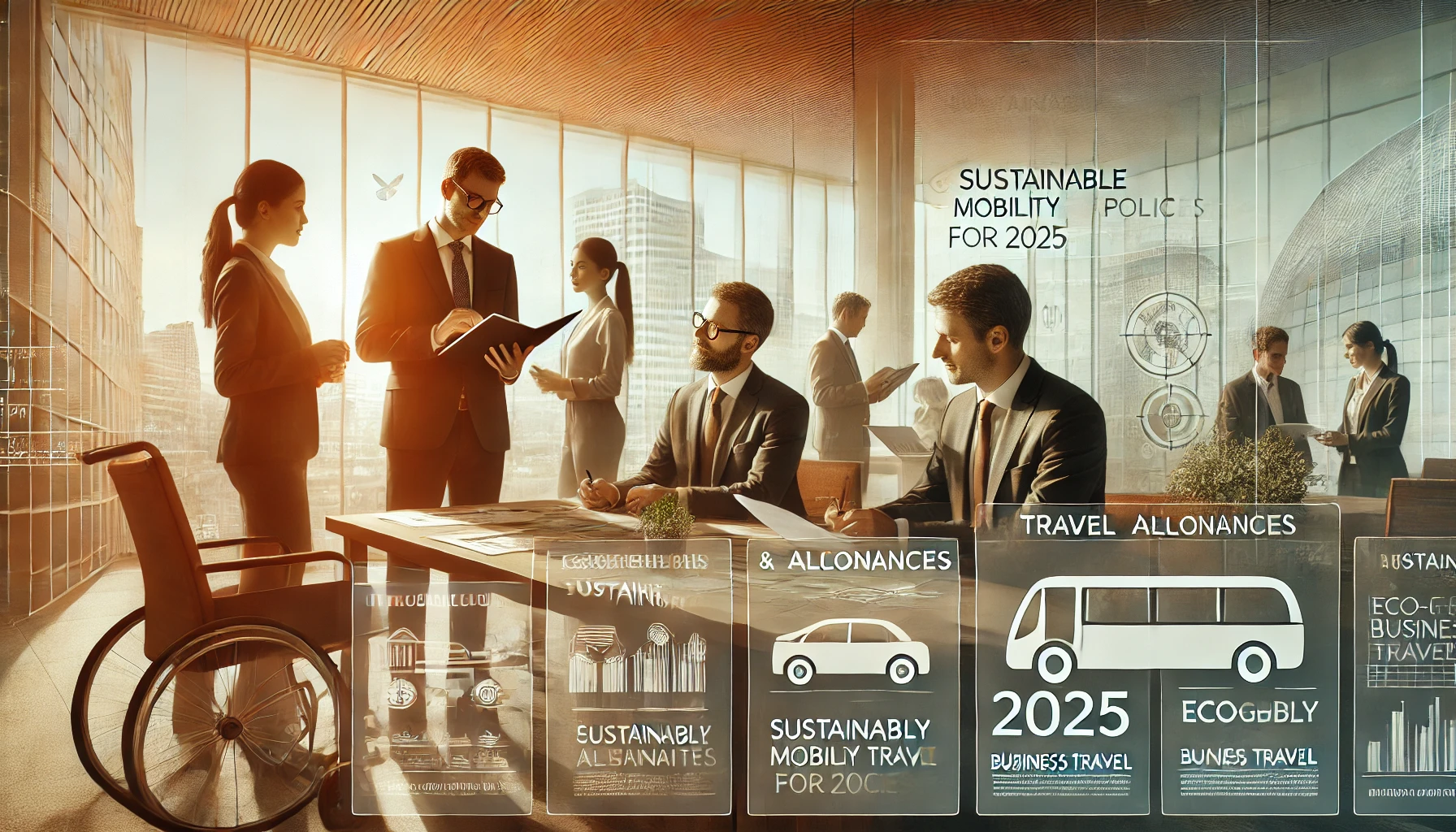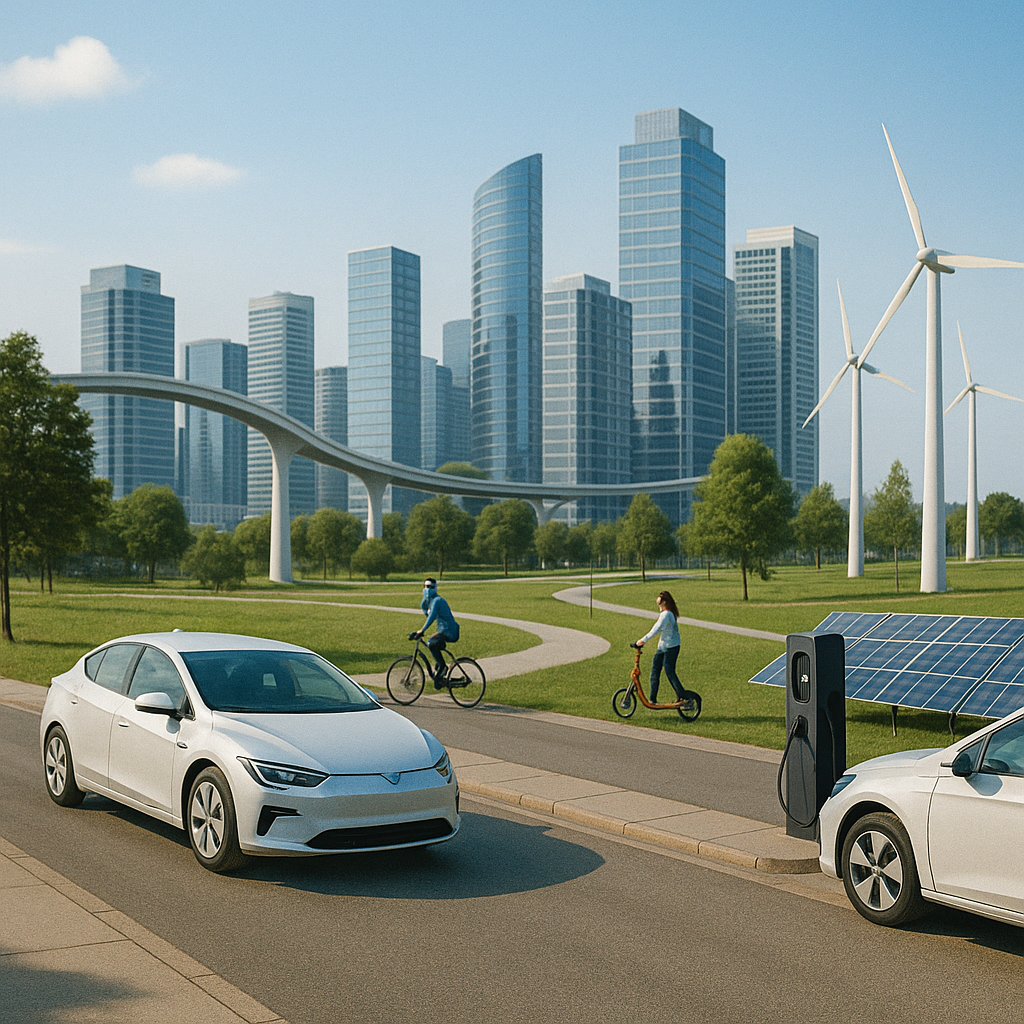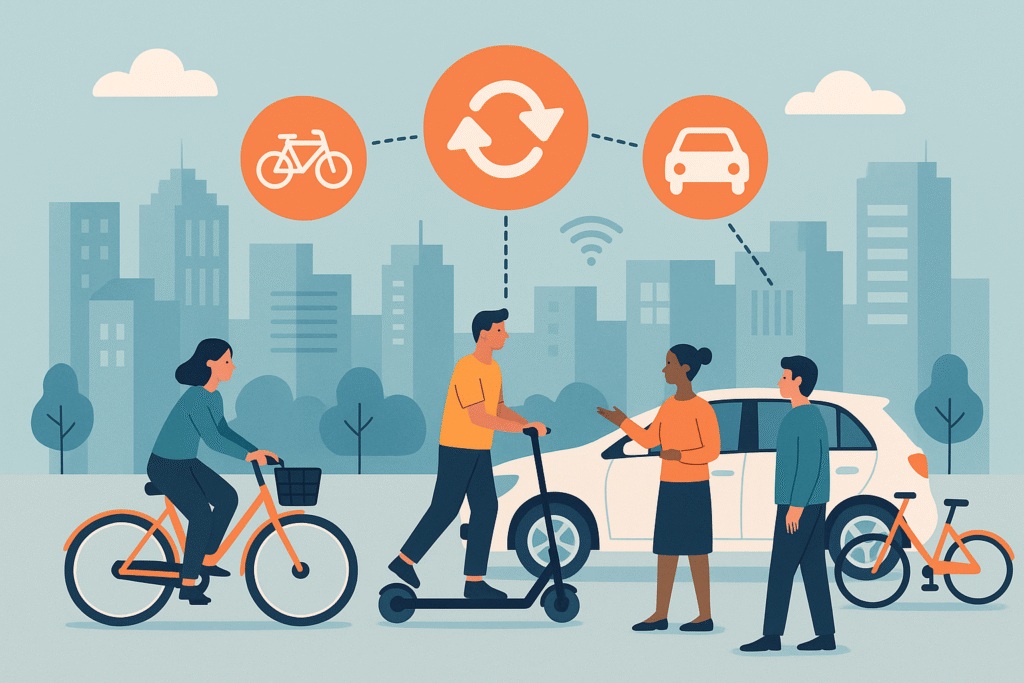The world of shared mobility and the sharing economy continues to evolve at an incredible pace, shaping how we move, work, and interact with our cities. This month, we’ve gathered a selection of the most relevant and insightful articles published in March 2025, shedding light on the latest trends, innovations, and policy developments influencing the sector.
MaaS in Mid-Sized Cities: A Step-by-Step Adoption Strategy
A recent article by QualEnergia (February 26, 2025) explores the potential of Mobility as a Service (MaaS) in mid-sized cities, offering a detailed analysis of how urban areas can successfully implement this model. The report outlines five key stages of MaaS integration, ranging from initial digital ticketing to full multimodal interoperability. By creating seamless transport experiences through a unified platform, cities can encourage more sustainable, flexible, and cost-effective travel alternatives for their residents. The article highlights case studies of European cities that have successfully integrated MaaS into their public transport systems, leading to reduced congestion, improved air quality, and increased public transport usage.

The Future of Autonomous Vehicles in Shared Mobility

In the latest issue of Strade & Autostrade Online (January/February 2025), Professor Sergio Matteo Savaresi from the Politecnico di Milano discusses how autonomous vehicle technology is set to revolutionize shared mobility. The article delves into the rapid advancements in AI-driven navigation, safety protocols, and vehicle-to-infrastructure communication, emphasizing their potential to significantly enhance efficiency and reduce accidents. Recent developments include self-driving electric taxis, which are being trialed in various European cities, showing promising results in reducing travel time and environmental impact. The article also explores regulatory challenges and the role of policymakers in ensuring that self-driving technology is deployed safely and equitably across urban areas.
Business Travel Incentives: A Sustainable Shift in 2025
 An article from Diritto Lavoro (February 14, 2025) examines how corporate travel policies are shifting towards sustainability, encouraging businesses to reduce their environmental footprint. Companies are increasingly incentivizing employees to choose low-emission transport options, such as high-speed rail, car-sharing services, and electric rental cars over traditional flights and personal vehicles. The article discusses how tax benefits and government grantsare helping firms implement greener travel solutions, as well as how these policies can contribute to corporate ESG (Environmental, Social, and Governance) goals. Experts predict that in the coming years, sustainable travel practices will become the new standard, particularly in sectors that require frequent business trips.
An article from Diritto Lavoro (February 14, 2025) examines how corporate travel policies are shifting towards sustainability, encouraging businesses to reduce their environmental footprint. Companies are increasingly incentivizing employees to choose low-emission transport options, such as high-speed rail, car-sharing services, and electric rental cars over traditional flights and personal vehicles. The article discusses how tax benefits and government grantsare helping firms implement greener travel solutions, as well as how these policies can contribute to corporate ESG (Environmental, Social, and Governance) goals. Experts predict that in the coming years, sustainable travel practices will become the new standard, particularly in sectors that require frequent business trips.
Electric Mobility in Italy: 2025 Incentives Unveiled

Daze.eu (February 13, 2025) provides a comprehensive guide to the latest Italian government incentives for electric mobility, offering financial support for individuals and businesses looking to transition to cleaner transportation options. The article details the latest subsidies for new and used electric vehicles, including cars, vans, and commercial fleets, as well as bonuses for micro-mobility solutions like e-bikes and e-scooters. A significant focus is placed on incentives for home and workplace charging stations, with new policies aimed at accelerating the rollout of private and public charging infrastructure. With an increasing number of cities implementing low-emission zones, these incentives are expected to drive a surge in electric vehicle adoption over the next few years.
These articles highlight the dynamic shifts in mobility and business operations, emphasizing a collective move towards sustainability, efficiency, and shared resources. As urban landscapes evolve, embracing these trends will be crucial for building resilient and adaptable communities.
Happy reading!
Note: The summaries provided are based on the articles linked above. For a comprehensive understanding, readers are encouraged to access the full articles.





